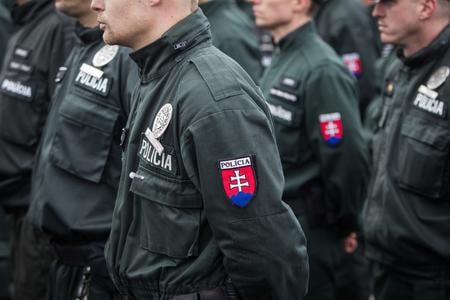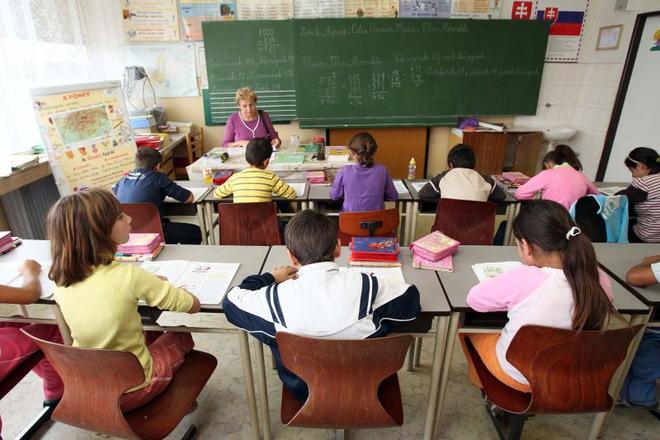These are challenging times for human rights around the world. In Slovakia, the main problem remains unchanged for years - the Roma minority continues facing exclusion and segregation in settlements. But in 2016, migration and hate speech also came into the spotlight.
The consensus concerns the need for security measures for people to apply their human rights changes to the consensus that we have to repress human rights to achieve security, Marta Šimečková, the head of board of directors of Amnesty International Slovensko, the local branch of the organisation, told journalists as she presented its annual human rights report.
“Politicians in many countries, including Slovakia, present the opinion that human rights are the concept of elites,” stated Šimečková, adding that this goes for criminality of Roma in Slovakia much like for the threat of terrorism and the migration crisis abroad.
Hate speech featuring the “us vs. them” motif occurred in Slovakia in the same way it did in other countries last year, stated Kamila Gunišová, the head of the office of Amnesty International Slovensko. In that sense, human rights were depicted as an obstacle of security, national interest and prosperity. Hate speech was directed against migrants, media, Muslims, and Roma, Gunišová added.
The fault in our politicians
In addition to hate speech, there have always been policies leading to restricting human rights, like the amended law on the registration of churches, which AI believes to contradict freedom of confession, or the intention of the Interior Ministry to strengthen police patrols in Roma localities which contradicts equality treatment, Gunišová said. She also pointed to the language Prime Minister Robert Fico used against journalists last year.

“It is important that our government leaders do not to use hate speech, but the opposite – they should respect the dignity of every human being in their statements,” said Gunišová.
She went on describing the prime minister’s rhetoric regarding refugees and Muslims. Slovakia refused to accept the mechanism of dividing immigrants from Greece and Italy and in the connection with this, Slovakia turned to EU Court.
“Slovakia came up with ‘sustainable migration’ based on volunteers willing to accept refugees,” continued in criticism Gunišová. According to this ‘philosophy’, Slovakia decided to relocate 100 people by 2017. As of the end of last year, we relocated nine people, stated Gunišová.
Discriminating against the Roma
Amnesty International has criticised the state for failing to look into inappropriate use of police powers, most visibly in cases when police units have intervened in Roma settlements.
“The examination of these cases is too long and non-objective because the policeman is examining his colleague,” Gunišová explained. The Justice Ministry reacted in the summer by saying that the inspection will be moved from the Interior Ministry to the Prosecutor’s Office.

But no steps have been taken to change the current situation so far.
“To the contrary, the strengthening of police patrols in Roma settlements could lead to similar cases,” Gunišová said.
The identification of problematic localities is also very disputable.
“We don't know the methodology used to identify those localities, how the data was collected, how it was processed, why the particular communities were chosen. How does criminality develop in these localities compared with other localities?” Gunišová named several problems with the identification.
This plan appears simultaneously with the European Commission holding a proceeding against Slovakia for breaking a racial equality directive - the discrimination of Roma children in education.
“Many international organisations as well as the European Commission stress the excessive placement of Roma children in special schools and classrooms or separated schools and classrooms,” stated Gunišová, adding that the Roma children are not only circled in exclusion from the society but they also receive worse education.
An amendment to the educational system which should reduce placing of Roma children into special schools based only on their socio-economic background does not yield any results.
Human rights under attack
“What we have seen and what will be very actual in 2017 and beyond is that human rights institutions and human rights are under attack everywhere, including western Europe, North America which we thought as the countries which championed human rights,” summed up Krasimir Yankov, a researcher of AI for Ukraine, Moldova, and Belarus.
But while such attacks pose many challenges for the human rights movement, they also offer possibilities.
“Every crisis is a chance at the same time,” Marta Šimečková summed up.



 (source: Sme - Tibor Somogyi)
(source: Sme - Tibor Somogyi)